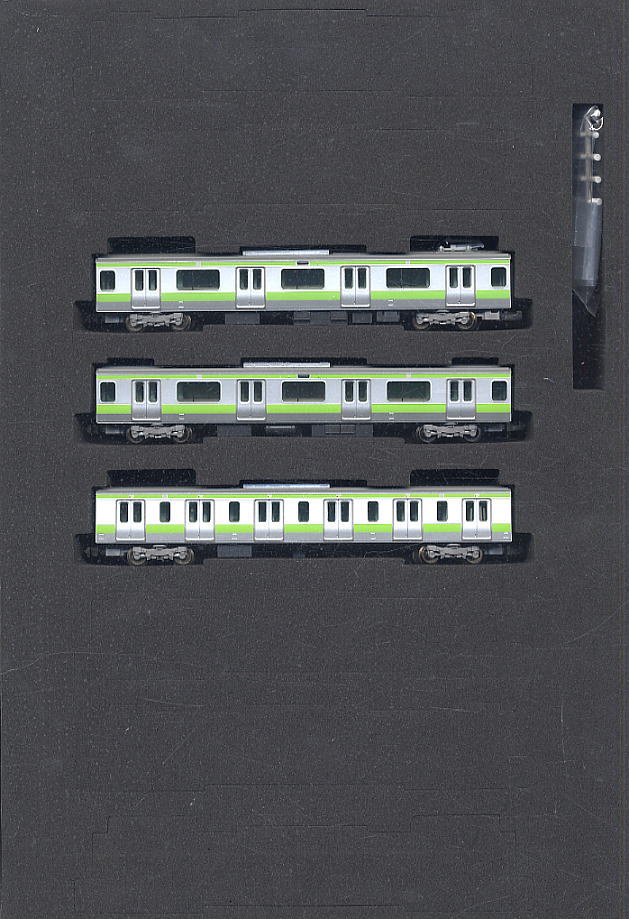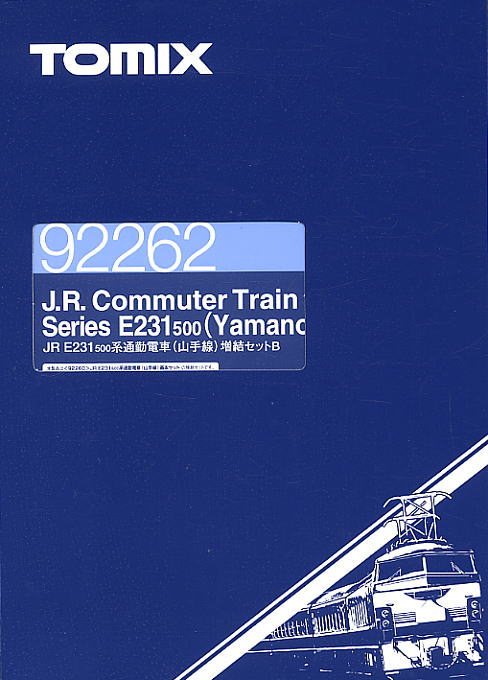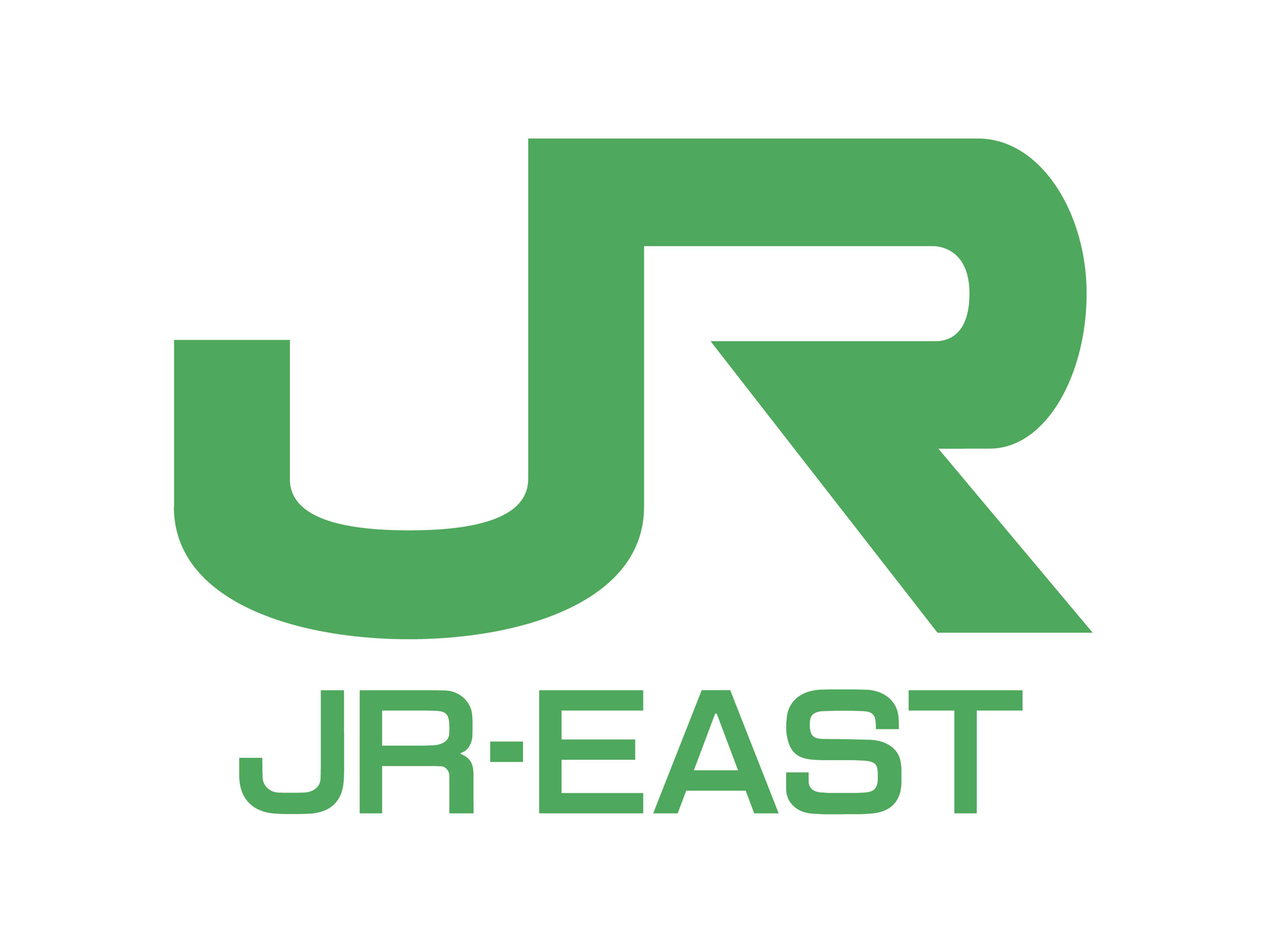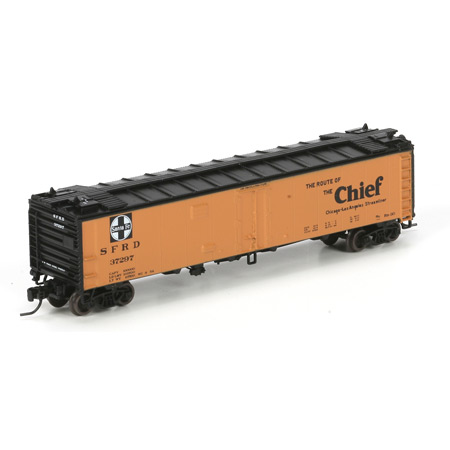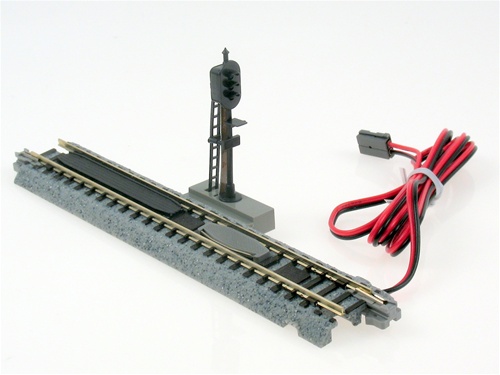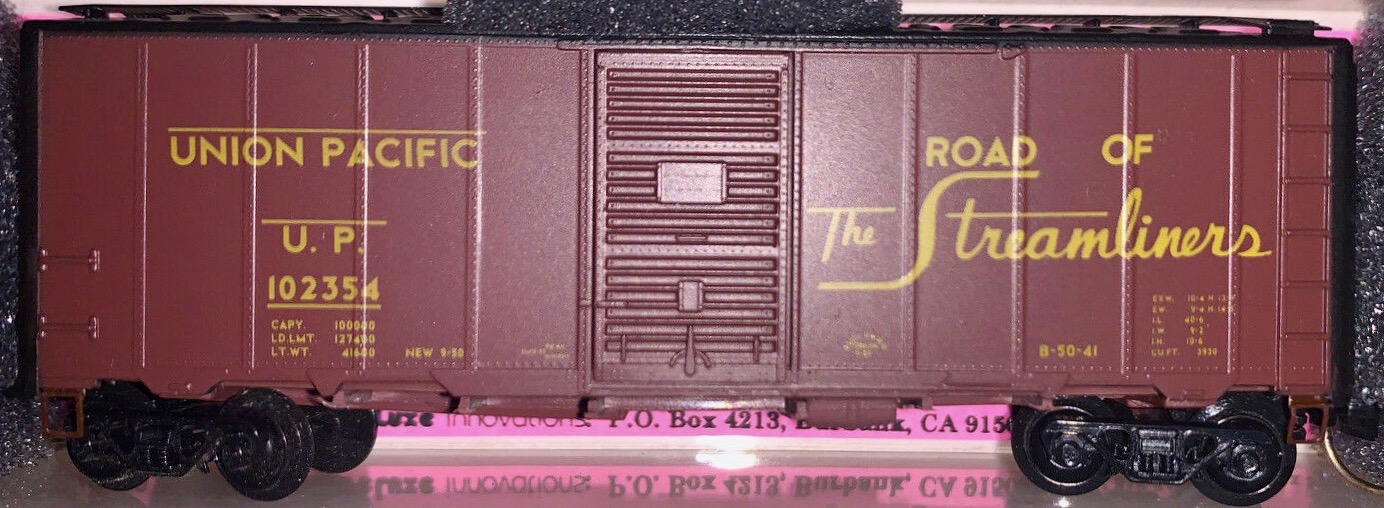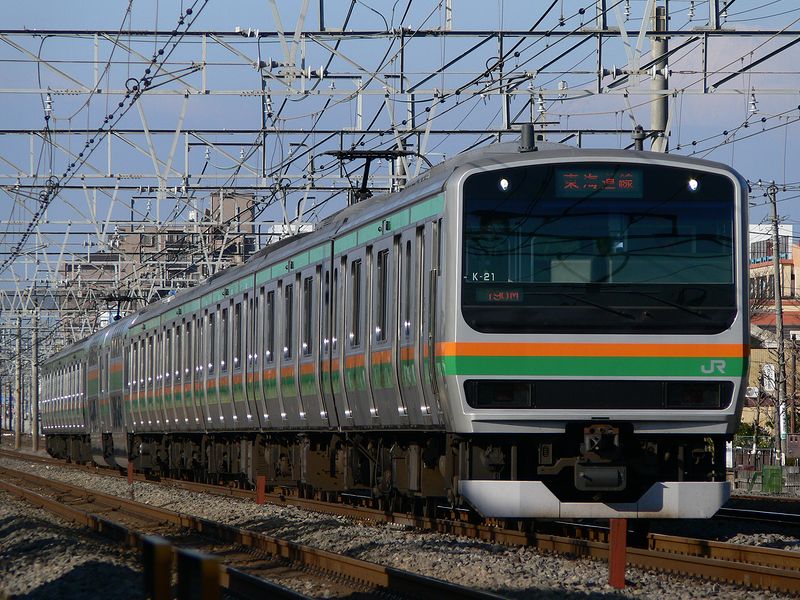Specific Item Information: 3 car set add on set for set 92260 has 3 non-motorized cars and comes in a book type case with extra spaces for the cars from sets 92260 and 92261.
To make up the complete 11 car Yamanote train requires the following sets:
(1) 92260, (1) 92261, and (2) 92262
Prototype History: The E231 series (E231系 E231-kei) is an electric multiple unit (EMU) train type used for commuter and outer-suburban services operated by East Japan Railway Company (JR East) in Japan since 2000.
Originally, 46 ten-car sets (Sets B1-42, B57, B80-82) were based at Mitaka Depot for use on Chuo-Sobu Line services, replacing the earlier 103 and 201 series fleet. Sets B1 to B42 were delivered between February 2000 and November 2001. Set B57 was delivered in November 2002. Sets 80 to 82 were delivered between October and November 2006. The first sets entered service on 13 March 2000. These sets each include one "six-door" SaHa E230 car (car 5).
Originally, 46 ten-car sets (Sets B1-42, B57, B80-82) were based at Mitaka Depot for use on Chuo-Sobu Line services, replacing the earlier 103 and 201 series fleet. Sets B1 to B42 were delivered between February 2000 and November 2001. Set B57 was delivered in November 2002. Sets 80 to 82 were delivered between October and November 2006. The first sets entered service on 13 March 2000. These sets each include one "six-door" SaHa E230 car (car 5).
Road Name History: JR East was incorporated on 1 April 1987 after being spun off from the government-run Japanese National Railways (JNR). The spin-off was nominally "privatization", as the company was actually a wholly owned subsidiary of the government-owned JNR Settlement Corporation for several years, and was not completely sold to the public until 2002.
Following the breakup, JR East ran the operations on former JNR lines in the Greater Tokyo Area, the Tohoku region, and surrounding areas. Its railway lines primarily serve Kanto and Tohoku regions, along with adjacent areas in Koshin'etsu region (Niigata, Nagano, Yamanashi) and Shizuoka prefectures.
Following the breakup, JR East ran the operations on former JNR lines in the Greater Tokyo Area, the Tohoku region, and surrounding areas. Its railway lines primarily serve Kanto and Tohoku regions, along with adjacent areas in Koshin'etsu region (Niigata, Nagano, Yamanashi) and Shizuoka prefectures.
Brand/Importer Information:  Tomix is a brand of Takara Tomy, a large Japanese conglomerate of companies that makes toys and games for the international marketplace. The Tomix brand (along with the Tomytec brand) are both managed by the Tomytec subsidiary/division of Takara Tomy. Prior to 1976 Tomy produced model trains using the "Tomy" brand name of the products. In 1976, they launched the new brand "Tomix" to segregate their model trains from their childrens toy lines.
Tomix is a brand of Takara Tomy, a large Japanese conglomerate of companies that makes toys and games for the international marketplace. The Tomix brand (along with the Tomytec brand) are both managed by the Tomytec subsidiary/division of Takara Tomy. Prior to 1976 Tomy produced model trains using the "Tomy" brand name of the products. In 1976, they launched the new brand "Tomix" to segregate their model trains from their childrens toy lines.
Generally it can be difficult to understand why Tomytec releases some items using the Tomix brand and others using the Tomytec brand. There are some generalizations we have observed. Thomas the Tank Engine falls under Tomix, as do the JNR steam engines as well as bullet trains (Shinkansen) and track cleaning cars. Maybe another curator can step in and elaborate on this section.

Generally it can be difficult to understand why Tomytec releases some items using the Tomix brand and others using the Tomytec brand. There are some generalizations we have observed. Thomas the Tank Engine falls under Tomix, as do the JNR steam engines as well as bullet trains (Shinkansen) and track cleaning cars. Maybe another curator can step in and elaborate on this section.
Manufacturer Information: 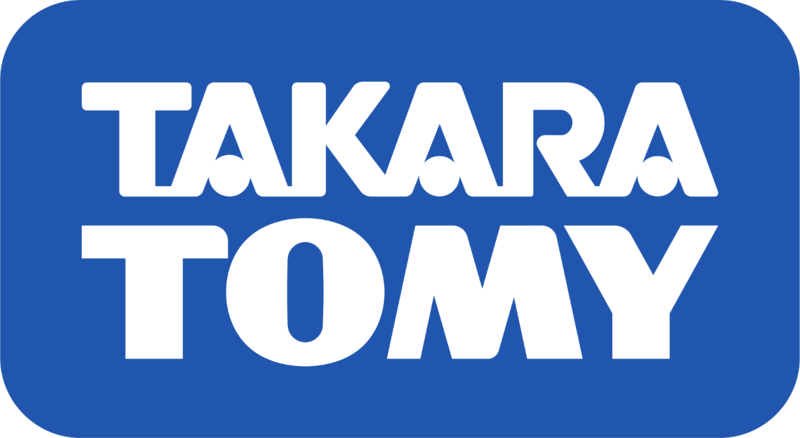 Largely a Japanese manufacturer of children's toys and baby products, Takara Tomy has established a number of different subsidiary companies, with sales offices and factories located in various locations around the world. The firm is the product of a 2006 merger-of-equals between Tomy and Takara.
Largely a Japanese manufacturer of children's toys and baby products, Takara Tomy has established a number of different subsidiary companies, with sales offices and factories located in various locations around the world. The firm is the product of a 2006 merger-of-equals between Tomy and Takara.
Takara Tomy produces N Scale model trains under their Tomytec division (we use the term loosely because it is actually a more complex relationship) using two different brand names "Tomytec" and "Tomix". Technically speaking these are not brands in the Western sense but rather they more closely resemble subsidiaries -of-subsidiaries, and where they fit in the corporate org chart may be the matter for a Master's thesis, but for our purposes we can think of them as simply two different brands with one manufacturer. In the past (prior to 1976) some model train products were branded simply "Tomy". To further confuse things, since 2000, outside of Japan, the company goes by the simple name, "Tomy" for their international subsidiaries.
If you consider both brand names as a single company, then the Tomytec/Tomix product line is the largest of its kind in Japan; with Kato following in second place (as of 2017). While Takara Tomy products are popular around the world, the firm's focus on children's toys has limited the international acceptance and distribution of its Tomytec model railroad products. Furthermore, unlike Kato, their focus tends to be heavily skewed towards Japanes prototypes.

Takara Tomy produces N Scale model trains under their Tomytec division (we use the term loosely because it is actually a more complex relationship) using two different brand names "Tomytec" and "Tomix". Technically speaking these are not brands in the Western sense but rather they more closely resemble subsidiaries -of-subsidiaries, and where they fit in the corporate org chart may be the matter for a Master's thesis, but for our purposes we can think of them as simply two different brands with one manufacturer. In the past (prior to 1976) some model train products were branded simply "Tomy". To further confuse things, since 2000, outside of Japan, the company goes by the simple name, "Tomy" for their international subsidiaries.
If you consider both brand names as a single company, then the Tomytec/Tomix product line is the largest of its kind in Japan; with Kato following in second place (as of 2017). While Takara Tomy products are popular around the world, the firm's focus on children's toys has limited the international acceptance and distribution of its Tomytec model railroad products. Furthermore, unlike Kato, their focus tends to be heavily skewed towards Japanes prototypes.
Item created by: nscalestation on 2018-10-07 12:59:04
If you see errors or missing data in this entry, please feel free to log in and edit it. Anyone with a Gmail account can log in instantly.
If you see errors or missing data in this entry, please feel free to log in and edit it. Anyone with a Gmail account can log in instantly.


